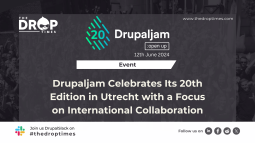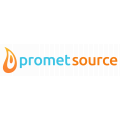Drupal vs Revize: An In-Depth Comparison for Government Websites
The comprehensive analysis by Promet Source titled "Drupal vs Revize for Government: A Comprehensive Guide," by Veniz Guzman, extensively compares content management systems (CMS) for government websites. This examination sheds light on the merits and considerations of two key contenders: Drupal and Revize.
Drupal is highly regarded for its open-source, adaptable, and standards-compliant nature, making it a versatile choice. Its robust community continually drives innovation within the CMS realm.
In contrast, Revize is a CMS specially tailored for government use, offering bespoke features to empower public organisations and bolster community engagement.
The assessment encompasses critical criteria such as security against external threats, adherence to standards like FedRamp and GDPR, accessibility features, integration capabilities, maintenance and upgrades, vendor support, and cost-effectiveness.
Security is an essential aspect for both Drupal and Revize, with Drupal's open-source model providing transparency and swift responses to vulnerabilities, while Revize emphasises physical security and continuous monitoring.
Regarding compliance, Drupal excels by offering specific tools and modules for GDPR compliance and benefits from FedRAMP authorisation when hosted on platforms like Acquia. Conversely, Revize's compliance stance remains less explicit.
Drupal demonstrates a strong commitment to accessibility, driven by its adherence to open standards, semantic HTML, and accessible practices to ensure inclusivity. In contrast, Revize prioritises responsive web design and mobile accessibility.
In the realm of integration capabilities, Drupal shines with its extensive range of third-party integration modules, while Revize's integration tools lack specific disclosure.
Drupal ensures dependable maintenance and upgrades through regular updates and robust community support, while Revize highlights continuous monitoring and server maintenance.
Both CMS platforms offer viable options, and the choice ultimately hinges on each organisation's unique requirements and priorities. For more information, read the blog post.
Disclaimer: The opinions expressed in this story do not necessarily represent that of TheDropTimes. We regularly share third-party blog posts that feature Drupal in good faith. TDT recommends Reader's discretion while consuming such content, as the veracity/authenticity of the story depends on the blogger and their motives.
Note: The vision of this web portal is to help promote news and stories around the Drupal community and promote and celebrate the people and organizations in the community. We strive to create and distribute our content based on these content policy. If you see any omission/variation on this please let us know in the comments below and we will try to address the issue as best we can.
























